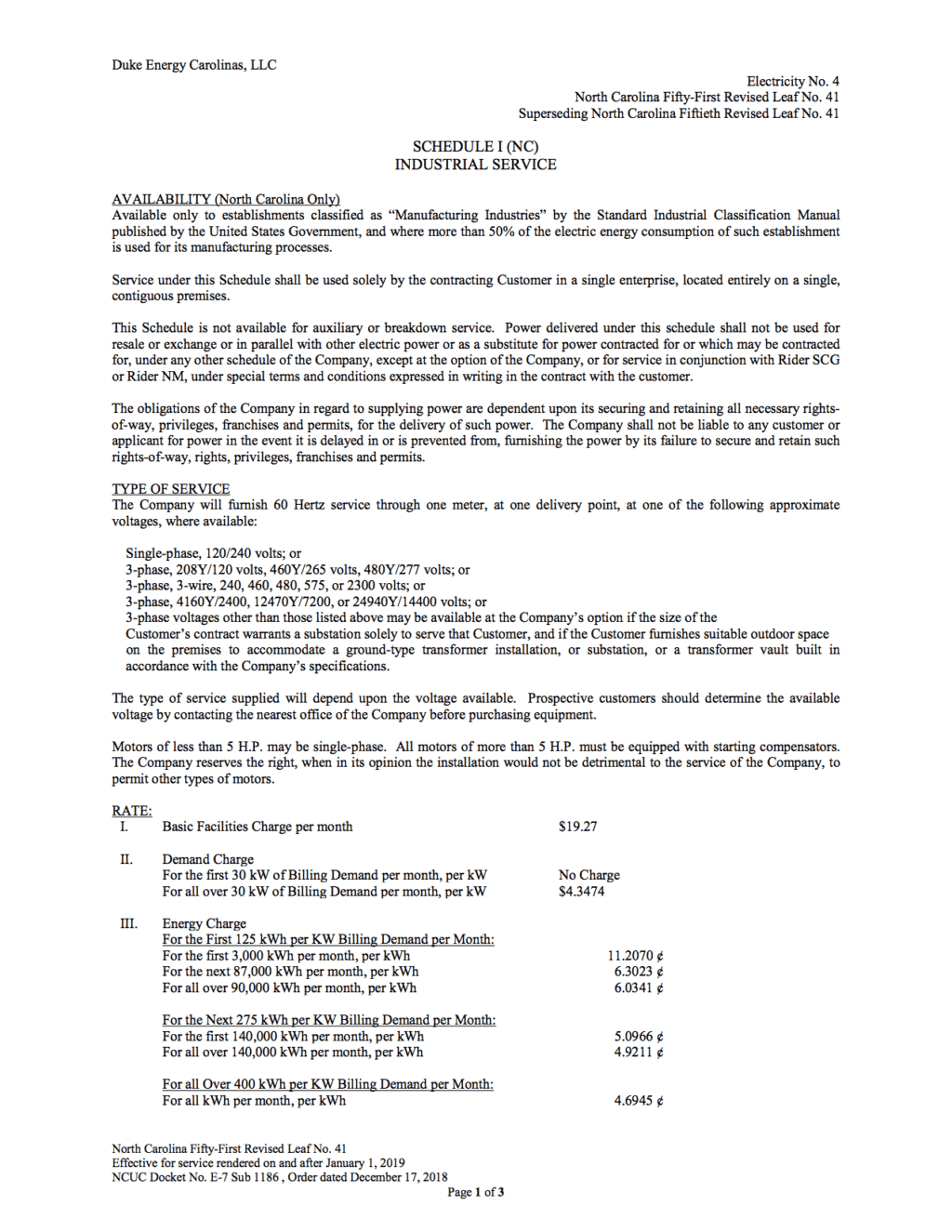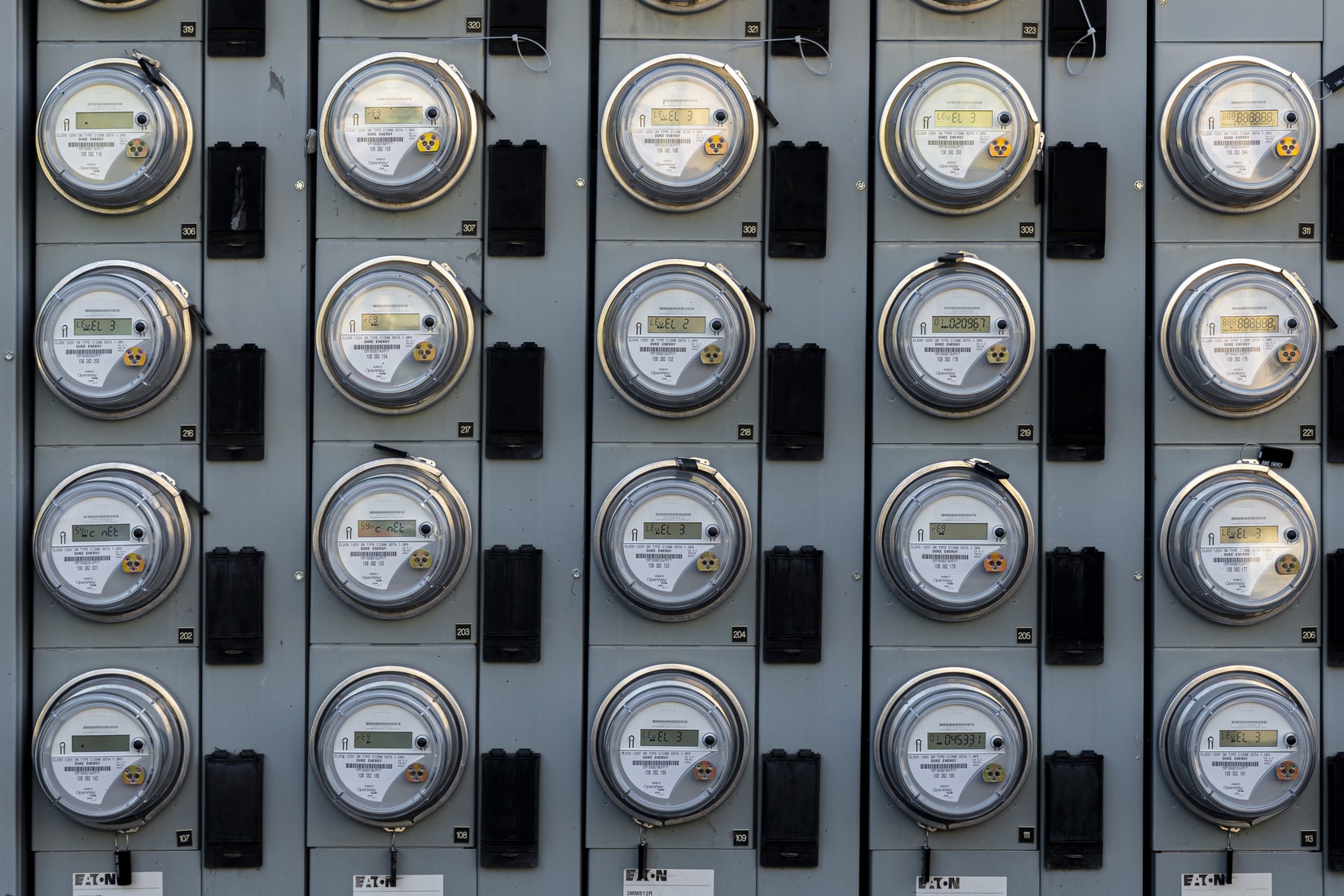There’s not a single business out there that can operate without an electric company. In fact, with technology playing such a massive part in our day-to-day lives, we really can’t do anything without electric providers.
The electric utility industry is one of the most important sectors in the United States. It is responsible for delivering electricity to homes and businesses across the country. The fact that all ten of the largest electric utility companies are part of the Fortune 500 is a testament to the size and importance of this industry. Among the largest companies in the utilities sector, the biggest electric utility companies in the US stand out for their high market cap, industry dominance, and the vast number of customers they serve. When identifying the biggest electric utility companies, market cap is a key factor that highlights their financial strength and market position.
We’re going to take a look at the ten largest electric utility companies in the US. But first, let’s learn a little more about the electricity industry.
Electric Industry Overview
When it comes to the largest utility companies in the US, a majority of them are electric. These companies often offer both electricity and natural gas, operating as gas and electric utilities, including all ten of our list of the largest utility companies in the US. Like telecom services, electric utilities are one business expense that can be very complicated to manage.
Many factors contribute to the complexity of the electric industry. For starters, it’s constantly evolving. Once focused on coal as the main means of energy production, the industry is transitioning to more sustainable methods like wind, solar, nuclear, hydroelectric, and natural gas. The need for cleaner energy sources has become apparent, and now these companies are adopting more sustainable methodologies. Leading companies are also prioritizing environmental stewardship as part of their operational priorities. So when business owners shop around for energy providers, they need to consider the power source.
Another thing that complicates the industry is the fact that there are regulated and deregulated markets. Each state has particular laws relating to the energy market and whether it is regulated or deregulated. So the state you operate in will have a significant effect on what options you have. In addition, some utilities are municipal entities, owned and operated by local governments, while many of the largest companies have multiple subsidiaries operating in different regions.
In a regulated market, only one utility provider is available to you. That company has a monopoly in that state, and you cannot choose what organization is generating the power you use.
Meanwhile, in a deregulated electricity market, you can choose from third-party companies that offer energy at their own rates. Energy generators typically sell their electricity at a wholesale price to suppliers that act as a middle man. This creates more competition and allows business owners to choose who they want to work with.
Considerations When Working With Electric Utility Companies
Whether you’re limited in a regulated market or have options in a deregulated market, it’s essential to audit your electricity bills continuously. One of the worst mistakes business owners can make is to assume that statements will be accurate, much less cost-efficient. It is up to you to confirm the accuracy of your utility bill, and if you’re skipping this step each month, you’re probably being overcharged.
Many business owners think the best way to save money on electricity costs is by lowering usage. While this is a great place to start, there is another excellent opportunity for savings via auditing. Utilities are governed by highly complex tariffs, and if you’re on the wrong one, then you could be grossly overpaying. Additionally, there can be a number of errors on your monthly invoice, like demand errors, estimated meter reading errors, ratchet errors, multiplier errors, and more.
The biggest consideration you must take when working with electric companies is that invoices won’t always be accurate. While it’s up to you to take control of these errors, companies like P3 Cost Analysts can do the heavy lifting for you.
Companies by Market Capitalization
When it comes to measuring the influence and financial strength of electric utility companies, market capitalization is a key indicator. As of 2025, NextEra Energy stands out as the largest electric utility company in the US by market capitalization, reflecting its leadership in both traditional and renewable energy sectors. Other top contenders include Duke Energy, Southern Company, Dominion Energy, Exelon Corporation, American Electric Power, Xcel Energy, Public Service Enterprise Group, Entergy Corporation, and Consolidated Edison. These companies are all publicly traded on the New York Stock Exchange and collectively serve more than 100 million customers across the country. Their substantial market capitalization not only highlights their dominance in the utilities sector but also underscores their critical role in powering American homes and businesses. As leading corporations in the energy industry, these companies continue to shape the future of electric power in the US market.
Electric Power Generation and Transmission
Electric power generation and transmission form the backbone of the electric utility industry, ensuring that electricity reliably reaches millions of customers nationwide. The largest electric utility companies in the US utilize a diverse mix of energy sources, including natural gas, coal, nuclear, and an increasing share of renewable energy such as wind and solar. American Electric Power (AEP) is a standout in this area, operating the largest electricity transmission system in the country, with nearly 39,000 miles of high-voltage lines spanning 11 states and serving over 5 million customers. Other major utility companies like Duke Energy and Southern Company also manage extensive transmission networks and generate electric power from a balanced portfolio of sources. This combination of robust infrastructure and diverse generation capabilities allows these companies to deliver reliable electricity while supporting the industry’s transition toward cleaner energy.
Regulatory Environment
The regulatory environment for electric utility companies in the United States is both complex and dynamic, varying significantly from state to state. In regulated markets, utility companies operate under the oversight of state public utility commissions, which set rates and monitor company operations to protect consumers and ensure reliable service. In contrast, deregulated markets introduce competition, allowing electric utility companies to compete with independent generators and suppliers for customers, often resulting in more choices and competitive pricing. The Federal Energy Regulatory Commission (FERC) also plays a pivotal role, particularly in overseeing interstate electricity transmission and wholesale energy markets. Leading companies like NextEra Energy and Duke Energy must skillfully navigate this regulatory landscape to maintain efficient operations and deliver dependable electricity to their customers, regardless of the market structure in which they operate.
Top Electric Utility Companies
You may or may not have the luxury of choosing your preferred energy provider. Whether or not you get to make a decision or if you’re stuck with a specific company in a regulated market, it’s important to know how these companies compare with others in the industry.
In the United States, there are around 1,600 electric utility companies! Among these, the largest utility company stands out as a leading power company and light company, serving millions of customers and playing a major role in the national energy sector. Some of the largest companies operate across multiple states, with several serving as many as six states or more. Clearly, we don’t have time to analyze each and every single one of them, so let’s check out the top ten largest energy companies in the US by revenue.
1. Exelon
-
Annual revenue: $36.3 Billion
-
Number of employees: 31,518
-
Headquarters: Chicago, IL
As the nation’s leading energy provider, Exelon serves more than 10 million customers. The company ranks high in customer satisfaction and focuses on modernizing its energy infrastructure. Exelon operates through several key subsidiary companies across different regions, with its services spanning six fully regulated utilities.
Exelon also works to advance clean and affordable energy through their Climate Change Investment Initiative and other charitable giving, demonstrating a strong commitment to environmental stewardship as part of its mission.
2. Duke Energy
-
Annual revenue: $24.7 Billion
-
Number of employees: 27,605
-
Headquarters: Charlotte, NC
Serving 8.2 million customers across the south and central United States, Duke Energy is another one of the biggest energy companies in the country. Duke is a leading gas and electric utility company. The company operates through multiple subsidiaries to serve its diverse customer base. Duke Energy serves approximately 7.5 million customers across six states in the Southeast and Midwest.
Duke is one of the utility companies leading the way towards eliminating carbon emissions, with significant effort directed at becoming net zero by 2050. On top of that, they’re constantly investing in the exploration of zero-emission power generation technologies, including hydrogen and advanced nuclear.
3. Southern Company
-
Annual revenue: $23.1 Billion
-
Number of employees: 27,164
-
Headquarters: Atlanta, GA
Southern Company takes just as much pride in being a good employer as they do in building the future of energy advancement. As a leading power company, Southern Company operates across multiple states and is one of the biggest electric power companies in the country. The company manages several subsidiaries to deliver energy services. They were named the number two Best Large Employer in America. They’re always looking ahead, with innovations from new nuclear to the deployment of electric transportation and renewables. Southern Company is also the second largest utility company in the U.S. in terms of customer base, serving 9 million customers.
4. Pacific Gas & Electric
-
Annual revenue: $20.6 Billion
-
Number of employees: 26,000
-
Headquarters: San Francisco, CA
Pacific Gas & Electric (PG&E) is one of the oldest electric supply companies, having been around for over a century. As a major gas and electric utility, they serve 5.5 million electric customers on the West Coast and have nearly as many gas accounts as well. PG&E operates as a key subsidiary within its parent holding company structure. The company buys and produces energy and distributes it throughout its Smart Grid, which helps them limit its carbon footprint.
5. NextEra Energy
-
Annual revenue: $17.1 Billion
-
Number of employees: 15,000
-
Headquarters: Juno Beach, FL
NextEra is the largest of the electricity utility companies by market capitalization. Its principal subsidiary, Florida Power & Light, is the largest utility company in the US by customer base and revenue, underscoring NextEra’s leadership in the energy industry. They’re focused on shaping the future through substantial investments in infrastructure and the generation of more wind and solar energy than their competitors. In addition, NextEra Energy has approximately 58 GW of generating capacity, including substantial fossil fuel and renewable sources. NextEra is one of the electric supply companies that is truly focused on innovation, with years of research on battery energy storage technology, applications, and uses.
6. American Electric Power
-
Annual revenue: $16.8 Billion
-
Number of employees: 16,688
-
Headquarters: Columbus, OH
This heavy hitter is another one of the largest electricity utility companies as well as the owner of the largest electricity transmission system in the country. Their 40,000-mile network serves approximately ten percent of the Eastern Interconnection and eleven percent of the Electric Reliability Council of Texas. AEP operates through multiple subsidiaries to serve its customers. American Electric Power, or AEP, is also dedicated to sustainability, economic development, and smart infrastructure.
7. DTE Energy
-
Annual revenue: $15.4 Billion
-
Number of employees: 10,300
-
Headquarters: Detroit, MI
DTE, formerly Detroit Edison, is one of the largest energy companies that focuses on much more than creating and distributing electricity and natural gas. As a major gas and electric utility, DTE operates through various subsidiary companies to manage its diverse energy businesses. The diversified energy company is also involved with developing and managing energy-related businesses, including non-utility organizations. They strive to go above and beyond for the communities they serve, including through philanthropy, volunteerism, and economic progress.
8. Edison International
-
Annual revenue: $14.9 Billion
-
Number of employees: 13,003
-
Headquarters: Rosemead, CA
Edison International is a parent company that operates through several subsidiaries, including the regulated utility Southern California Edison and the non-regulated energy services company, Edison Energy. The origins of this company go back to the late 1800s, making it one of the oldest and biggest energy companies in the country. Edison International is recognized as a leading utility company not only in the US but also in the world. The company is committed to sustainability and offers an annual report each year, as well as additional reports related to other important factors such as economic impact, diversity, inclusion, community investment, and more.
9. Dominion Energy
-
Annual revenue: $14.2 Billion
-
Number of employees: 17,100
-
Headquarters: Richmond
Dominion is another energy company with a clear plan to achieve net-zero carbon and methane emissions. They’ve even designated their company vision as becoming the most sustainable energy company in the country. Dominion operates through multiple subsidiaries to deliver energy services across various regions. As part of its corporate vision, Dominion emphasizes environmental stewardship, demonstrating a strong commitment to environmental management and sustainable practices. They aim to not only protect the environment but also to empower their people, serve their communities, and of course, create value for their shareholders. Another key focus for Dominion is reliability, and with service at 99.9% functionality, they are one of the most dependable electricity utility companies out there.
10. Consolidated Edison
-
Annual revenue: $13.7 Billion
-
Number of employees: 13,871
-
Headquarters: New York, NY
Also known as Con Edison, this company is one of the largest investor-owned electric power companies in the country. Historically, Con Edison has been recognized as a major light company, providing reliable light to millions of customers in New York City and Westchester County. They offer electric, gas, and steam service to over 10 million people in these areas. Con Edison operates through several subsidiary companies to deliver its utility services and maintain its strong market presence. In addition, Con Edison has helped over 5,000 buildings convert from oil to natural gas. They also have steam-generating plants, which provide a clean and reliable way for large buildings to heat, air condition, heat water, or sterilize.
Constellation Energy and Renewable Energy
Constellation Energy has emerged as a leader in the transition to renewable energy, making substantial investments in solar, wind, and other clean energy technologies. The company’s commitment to sustainability is evident in its strategic acquisitions, such as Calpine Corp, a major producer of natural gas and geothermal power. Constellation Energy’s focus on renewable energy aligns with a broader industry movement, as other major electric utility companies like NextEra Energy and Duke Energy also ramp up their investments in wind and solar power. NextEra Energy Resources is one of the country’s largest generators of renewable energy in the U.S. These efforts are crucial as the US energy sector shifts toward a cleaner, more sustainable future. By prioritizing renewable energy and clean power solutions, Constellation Energy and its peers are playing a leading role in reducing carbon emissions and driving innovation across the industry.
Calpine Corp and Energy Trading
Calpine Corp is a significant player in the North American energy market, known for its expertise in energy trading and power generation. The company operates more than 26,000 megawatts of generation capacity, primarily from natural gas and geothermal resources, serving customers in 22 states, Canada, and Mexico. Calpine Corp’s energy trading operations involve buying and selling electricity and natural gas on the wholesale market, allowing the company to optimize its generation assets and respond efficiently to market demand. By leveraging its extensive operations and market knowledge, Calpine Corp helps ensure that electricity and natural gas are delivered reliably and cost-effectively to businesses and consumers. As a key participant in the energy trading sector, Calpine Corp supports the overall stability and efficiency of the electric utility industry.
How to Save Money on Electric Utility Bills
Because of the complicated nature of electric utility billing, the best way to save your business money is to work with a company like . Our team has the industry knowledge and experience to help you navigate utility sourcing and come out on top.
Through our utility auditing services, we can help you save money regardless of whether you’re in a regulated or deregulated market. While those operating in a regulated market may be stuck with one provider, there is still room to find savings. We will comb through your invoices for up to the past three years, depending on your state’s regulations. We will find any overcharges or errors that have been incorrectly charged to your account. Moving forward, we will continue to monitor for errors and ensure maximum savings.
In deregulated markets, we will run a similar invoicing audit to find you savings, but we can also take things one step further. We will act as your energy broker to help you consider all options and secure the best pricing on the market. By determining your organization’s specific needs, we can help you find the right time to lock into a contract with the best rates possible.
Navigate Electricity Utility Companies With Expert Help
The electricity industry is complicated and confusing, not to mention monstrous! Business owners in regulated markets often think they have no opportunity to save money, while those in deregulated markets are overwhelmed with options. The ten biggest energy companies are just the tip of the iceberg!
Luckily, there’s a team of experts at P3 Cost Analysts standing by, waiting to help you save money on your electricity needs today. Let us help you navigate contract rates, understand your options, and reduce your business’s energy costs today.
To get started with P3’s utility expense audit, schedule a free consultation with an expert today!



